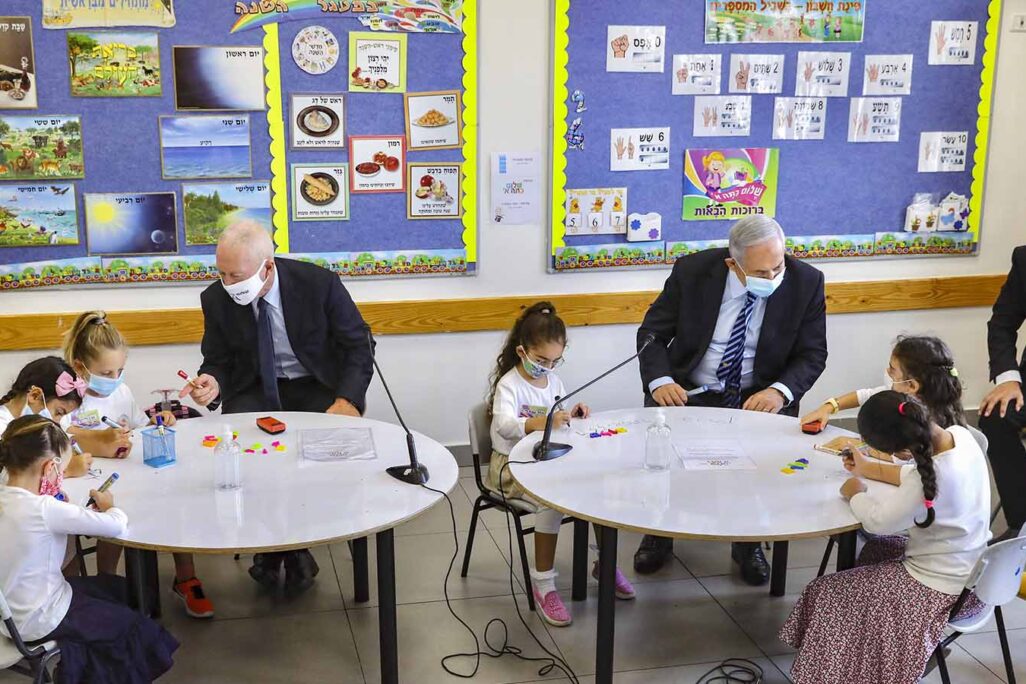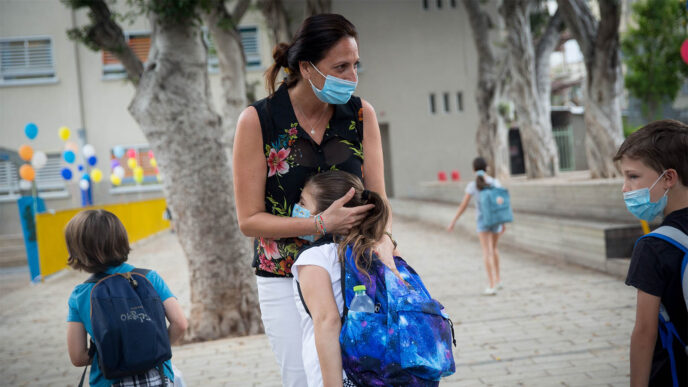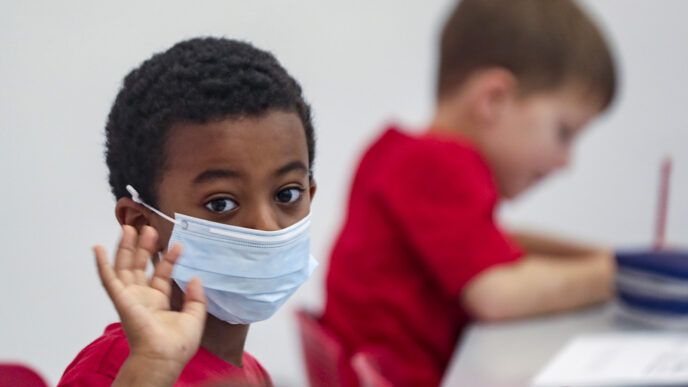
Proposal for the Minister of Education: change the title of this school year from "Partnership and Unity" to "Education in Austerity.” At this week’s meeting of the corona cabinet, the Prime Minister stated: "We cannot fund capsules in first and second grades." But the Prime Minister's remarks do not match the data.
The cabinet decided to resume school this coming week, for schoolchildren from first to fourth grades. Third and fourth graders will return to class in-person five days a week in small capsules, while first and second grade classes will be split into two groups that will each only attend class three days a week.
35% of the aid funding promised by the government in the corona crisis have not been implemented at all, as of the end of September 2020. There is 15 billion shekel remaining from the special budget allotted to dealing with the pandemic, and it does not appear that the state will be able to spend the full amount promised by the end of the year. Why then did the Prime Minister decide to draw the line at splitting first and second grades into smaller capsules and sending them back to learn every day?

The capsules are not a "waste of money," they are a long-term investment. Small classes lead to a better quality education according to every study. If the harm to students, who are just beginning to read and write, is not enough, there are also parents who will not be able to go to work, who will have to stay home half the week. 60% of those who must stay home from work are women. Women and children seem to be the main victims of the government’s decision not to prioritize education, and apparently, they are easy pickings.
Galant, the paper tiger
The decision to save money by cutting back on education is not surprising when looking back at the government's behavior during the pandemic. In April, at the start of the first lockdown, the Ministry of Finance decided to minimize spending at the expense of teachers. The Director General of the ministry publicly fought against the recognition of teaching online as deserving a salary. The Treasury then asked the teachers to “take one for the team” and cut back on their summer vacation days. Although these moves have failed, the logic remains the same – the education system is on the chopping block.
The Ministry of Education announced the "Learning with Security" program this summer. Some made fun of Education Minister Yoav Galant, the former army commander, for using battle slogans. But if funding was actually provided to ensure the safety of children, the nickname "commander of education" wouldn’t be necessary. Such funding has not been transferred to schools and is not on track to be transferred. The Minister of Education has been exposed as a paper tiger.
If only Bibi would listen to the Federal Reserve
On the eve of the start of the school year, the Ministry of Education prepared a work plan for this academic year estimated at 12 billion shekel. For a moment, it seemed that something was shifting in the cost-benefit perception of education in Israel. The allotted amount was large, there were preparations being made. But it was badly planned from the start – it allowed for capsules only for third and fourth grades. The Israeli government assumed that first and second graders are less contagious, and therefore didn’t need to learn in capsules.
Countries such as New Zealand, Canada and Sweden began allocating funding to operate the education system in capsules with appropriate supplies as early as April. In Israel, they discovered two weeks after the start of the year that nothing is free. After not investing enough in education, hindering its resources and ability to function according to the health guidelines, the government was forced to reclose the schools and re-enter lockdown. All of us have had to pay since and the price tag was about 10 billion Shekels – the estimated cost of the second lockdown.
Chair of the Federal Reserve of the United States, Jerome Powell, said earlier this month that "too little economic aid is leading to a weak recovery, which is causing unnecessary difficulty for households and businesses. The danger of spending too much at the moment seems smaller. Even if one understands in retrospect that the aid given was too great, it is not money that will have gone to waste.” Israeli stinginess is costing the state.
Enough Money for nine Programs
The Ministry of Education has prepared an alternative and detailed plan that allows for the establishment of a set of capsules in the entire elementary education system, and can be implemented in a record time of 5 weeks. The proposed outline requires the recruitment of about 13,000 teachers for first and second grades, good news for the economy suffering from mass unemployment. The outline also requires the establishment of appropriate infrastructure.
According to the Ministry of Education, the program will cost 1.6 billion shekel and according to the Ministry of Finance, 6 billion shekel. With the surplus left in the public coffers, 15 billion shekel, it is possible to finance the program between 2.5 and 9 times, depending on each ministry’s projection.

The parent committees and local authorities are outraged at the possibility of an intermittent school week for first and second graders. They argue that an alternative outline can be put in place without adding an additional shekel to the budget, by making extensive use of existing infrastructure in cities.
At the end of the day, these hopeful plans will not live to see the light of day. For elementary-school students who have already accumulated large gaps in learning, this will not help. They will only go to class for half a week, most likely until the next lockdown. The gaps between the rich and the poor will also increase, with more affluent municipalities able to provide for their residents.
And the damage can be quantified in numbers. According to an OECD report, every four months that students learn from home, represents a future loss of 1% of the GDP. Not creating learning capsules for first and second graders is an irrational move, educationally, economically and health-wise. All this while there is still money in the budget to be spent. Perhaps the lesson they really want to teach Israeli students is that they are not worth it.






